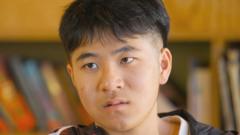The chief prosecutor asserts that a crime against humanity is being committed against vulnerable communities in Afghanistan.
**International Criminal Court Requests Arrest of Taliban Officials for Gender-Based Persecution**

**International Criminal Court Requests Arrest of Taliban Officials for Gender-Based Persecution**
Karim Khan highlights the ongoing atrocities faced by Afghan women and LGBTQI+ individuals under Taliban rule.
In a significant legal move, Karim Khan, the chief prosecutor of the International Criminal Court (ICC), announced on Thursday his request for arrest warrants against the Taliban's supreme leader, Sheikh Haibatullah Akhundzada, and Afghanistan's chief justice, Abdul Hakim Haqqani. This action is in response to what Khan describes as a “unprecedented” campaign of persecution aimed at Afghan women and girls, as well as members of the LGBTQI+ community.
Khan's statement highlighted the severe human rights violations occurring under Taliban governance since the U.S. military withdrawal in 2021. He pointed to acts of brutal repression including murder, imprisonment, torture, and enforced disappearance, as well as systematic sexual violence targeted at those opposing the regime.
The Taliban's draconian laws, presented as adhering to Islamic principles, have effectively erased women from public life, forcing them out of jobs and barring them from education. Notably, secondary education for girls has been prohibited, and women’s access to universities has been entirely stripped away, making Afghanistan the only country enforcing such extreme educational segregation.
Furthermore, the Taliban's closure of beauty salons in 2023 eliminated one of the few remaining safe spaces for women to gather, exacerbating their marginalization. The UN has gone as far as to label the Taliban's regime as one of “gender apartheid.” In the face of these oppressive conditions, many Afghan women have chosen to flee, seeking freedom beyond their country’s borders while others attempt to escape the regime's harsh living conditions.
Khan's statement highlighted the severe human rights violations occurring under Taliban governance since the U.S. military withdrawal in 2021. He pointed to acts of brutal repression including murder, imprisonment, torture, and enforced disappearance, as well as systematic sexual violence targeted at those opposing the regime.
The Taliban's draconian laws, presented as adhering to Islamic principles, have effectively erased women from public life, forcing them out of jobs and barring them from education. Notably, secondary education for girls has been prohibited, and women’s access to universities has been entirely stripped away, making Afghanistan the only country enforcing such extreme educational segregation.
Furthermore, the Taliban's closure of beauty salons in 2023 eliminated one of the few remaining safe spaces for women to gather, exacerbating their marginalization. The UN has gone as far as to label the Taliban's regime as one of “gender apartheid.” In the face of these oppressive conditions, many Afghan women have chosen to flee, seeking freedom beyond their country’s borders while others attempt to escape the regime's harsh living conditions.



















